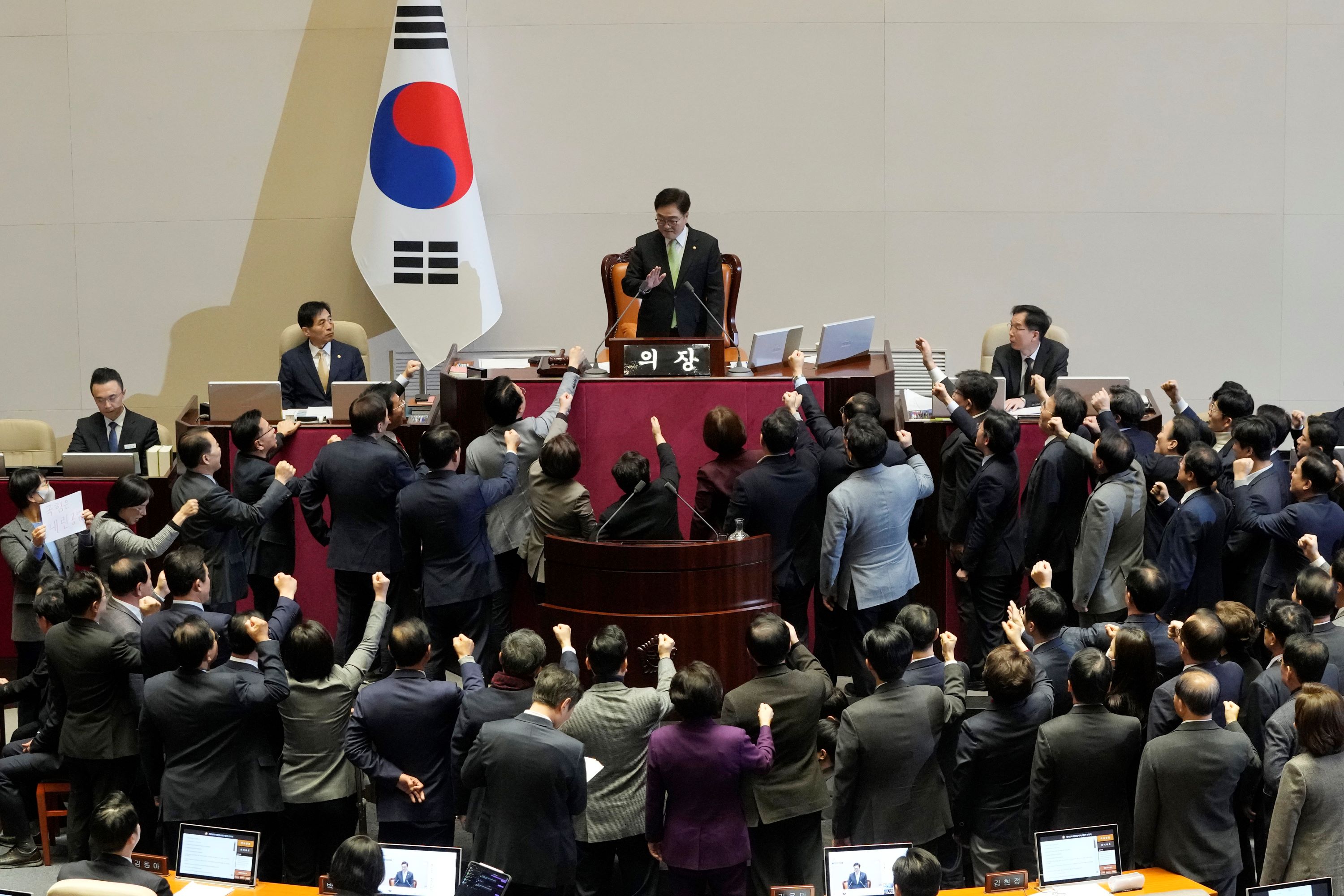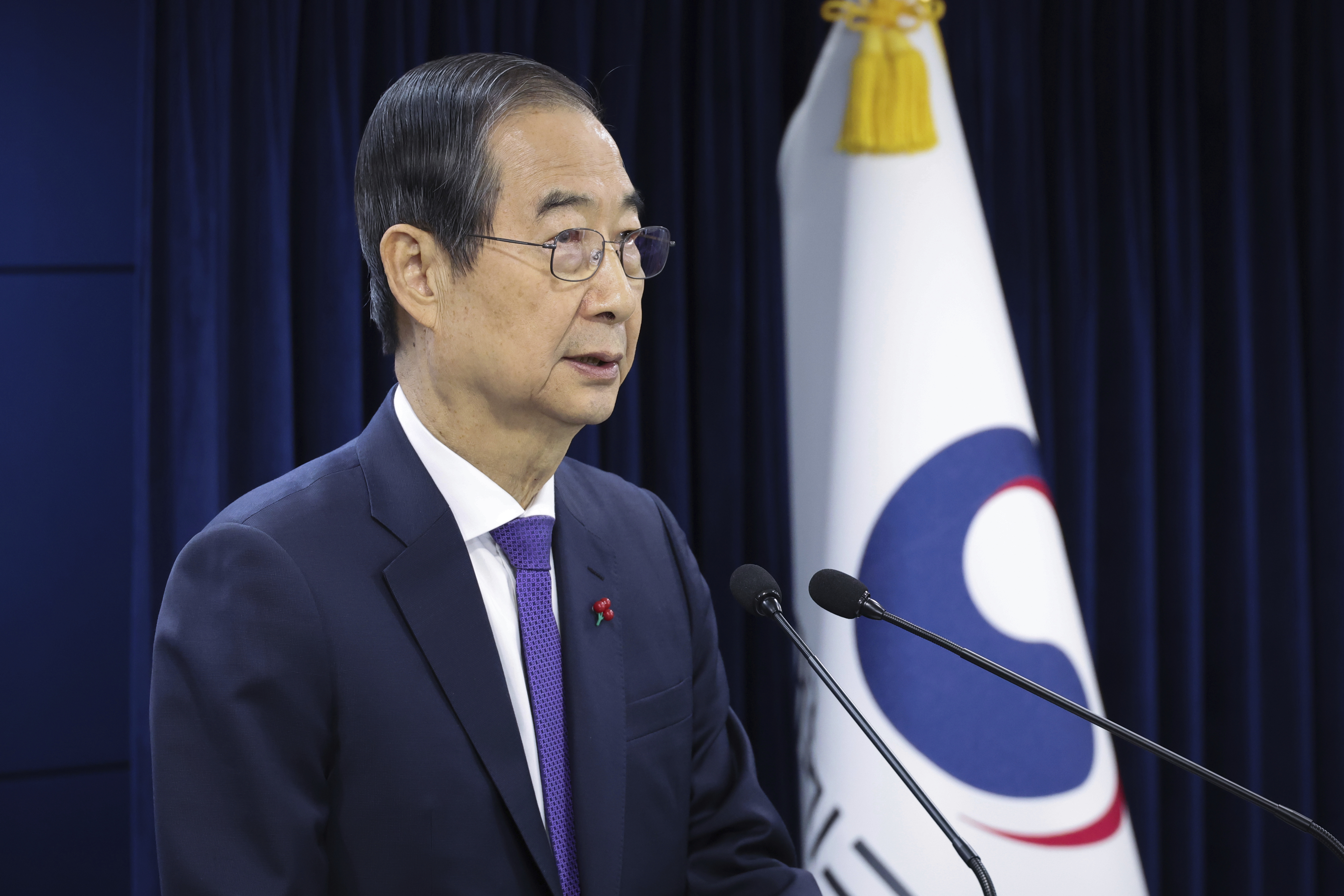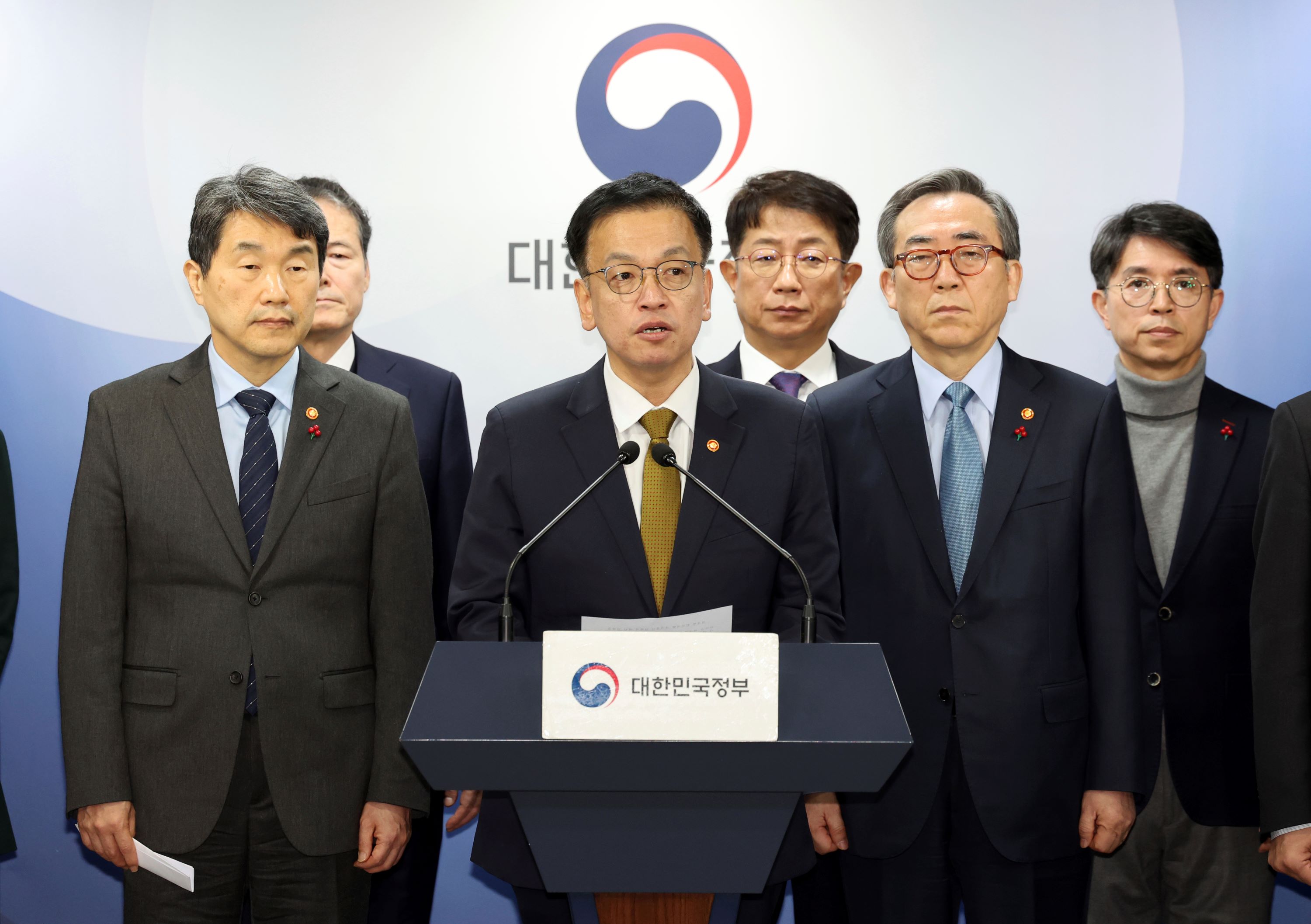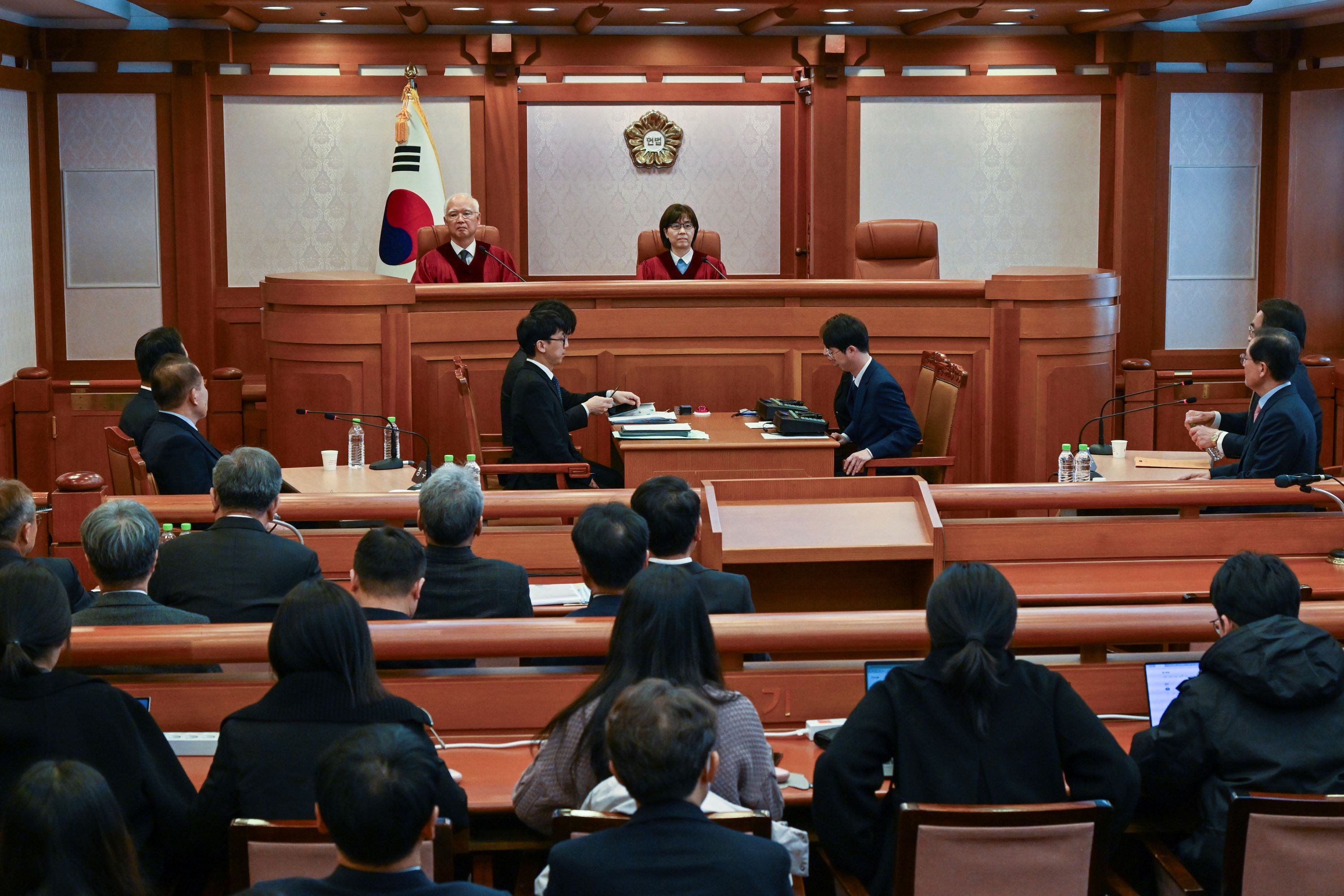
SEOUL - South Korea's parliament impeached acting President Han Duck-soo on Friday, less than two weeks after suspending President Yoon Suk-yeol's powers over his short-lived declaration of martial law, plunging the country deeper into political chaos.
The impeachment of Han, the acting president since Yoon was impeached on Dec 14 for declaring martial law on Dec 3, has pushed South Korea's once-vibrant democratic success story into uncharted territory.
In a statement after the vote, Han said he was saddened by what the unfolding events meant for the next generation, but accepted the outcome.
"I respect parliament's decision and in order to avoid further chaos and uncertainty, I will suspend my duties in accordance with relevant laws," he said.
READ MORE: South Korea's opposition moves to impeach acting President Han
He added he would await the decision of the Constitutional Court to review the impeachment motion. The ruling People Power Party, which has objected to the opposition-led impeachment of Han, said it had filed a constitutional petition.
Finance Minister Choi Sang-mok now assumes the role of acting president as the person next in line under the law. Choi, who doubles as deputy prime minister for economic affairs, vowed the stable management of state affairs.
He said in a statement that it would be of utmost significance to minimize the confusion of state affairs, pledging to do his best to stabilize the management.
The acting president stressed the importance of solid security, unshakable economy and stable public order, saying he felt heavy responsibility for the current situation.
He instructed civil servants to fulfill responsibilities in their respective positions without negligence to overcome the current difficulties.

The motion to impeach Han passed with 192 of the 300 votes amid rowdy scenes by People Power Party members who surrounded the speaker's podium, chanting that the vote was invalid and parliament had engaged in "tyranny".
Ahead of the parliamentary session, opposition leader Lee Jae-myung of the Democratic Party, which has majority control of parliament, accused Han of "acting for insurrection".
ALSO READ: South Korea's Yoon defies second agency summons over martial law
There has been overwhelming public support for Yoon's removal, opinion polls showed after his martial law attempt.
The plan for a vote to impeach Han came after he declined to immediately appoint three justices to fill vacancies at the Constitutional Court, saying it would exceed his acting role.
Until just before voting began, it was unclear how many votes were needed to impeach Han. The threshold for a prime minister is a simple majority, while a two-thirds majority is needed for a president.
READ MORE: S. Korea’s Yoon again defies request to appear for questioning
Speaker Woo Won-shik declared a simple majority would constitute parliamentary approval.
Earlier, the new acting President Choi pleaded with parliament to withdraw the plan to impeach Han, saying it would do serious damage to the economy.
The South Korean won retreated to 1,475.4 per dollar, down 0.53 percent by 0707 GMT ahead of the parliamentary vote.
"Impeaching Han would only mean prolonged political uncertainties," said Huh Jae-hwan, an analyst at Eugene Investment & Securities.

"In terms of financial markets, (Choi) taking charge can only be bad news, as it only goes to show that political turmoil is ongoing."
There was a chance the country would plunge into economic troubles comparable to its devastating financial crisis of the late 1990s, said Shin Yul, a political science professor at Myongji University.
Swift trial
The vote to determine Han's fate comes on the day the Constitutional Court held its first hearing to review whether to overturn the impeachment and reinstate Yoon or remove him permanently from office. It has 180 days to reach a decision.
Speaking in a preparatory hearing, Justice Cheong Hyung-sik said the court would move swiftly in the case considering its gravity, denying a request by Yoon's lawyers for a postponement in proceedings to better prepare.
ALSO READ: S. Korean main opp party urges acting president to promulgate special counsel bills
The next hearing is due on Jan 3.
One lawyer representing Yoon later told reporters the impeached president planned to appear in person in future.

The hearing follows weeks of defiance by Yoon, who ignored court requests to submit documents as well as summons by investigators in a separate criminal case over his martial law declaration.
Yoon was not required to attend Friday's hearing. If he is ousted, a new presidential election would be held within 60 days.
Worst political crisis in decades
Events since the Dec 3 martial law declaration have sparked South Korea's gravest political crisis since 1987, when widespread protests forced the ruling party of former military generals to accept a constitutional amendment bringing in a direct, popular vote to elect the president.
Yoon shocked the country and the world with a late-night announcement on Dec 3 that he was imposing martial law to overcome political deadlock and root out "anti-state forces".
Within hours, however, 190 lawmakers had defied the cordons of troops and police and voted against Yoon's order. About six hours after his initial decree, Yoon rescinded it.
On Friday, prosecutors indicted former defense Minister Kim Yong-hyun in the first move to put on trial an official accused of insurrection, Yonhap news said.


